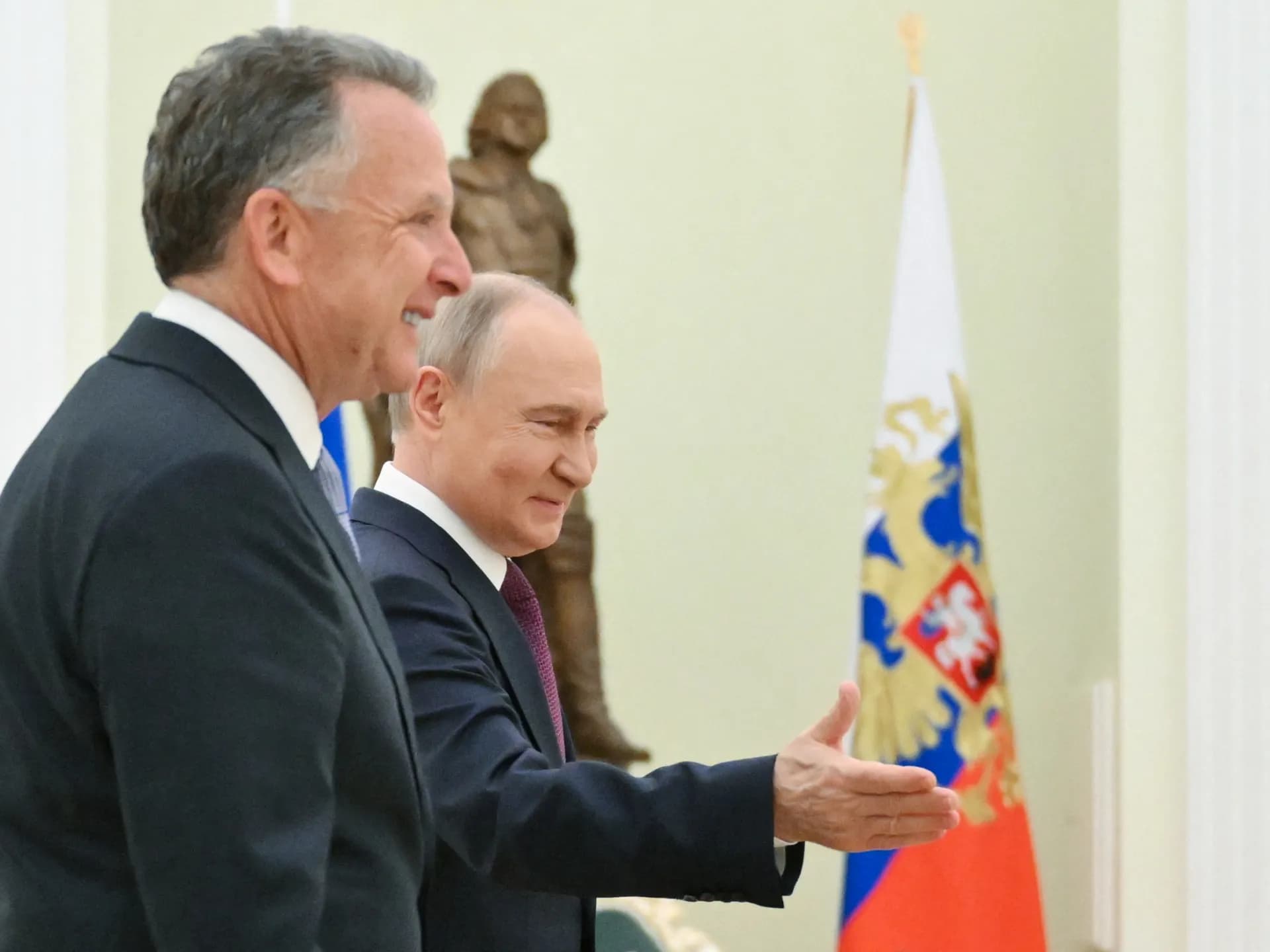We're loading the full news article for you. This includes the article content, images, author information, and related articles.
Plans for a high-stakes meeting between US President Donald Trump and Russian President Vladimir Putin in Budapest have been put on hold, signaling deep divisions over a potential peace deal for the ongoing conflict in Ukraine.

US President Donald Trump has indicated he did not want a 'wasted meeting' after plans for face-to-face talks with his Russian counterpart Vladimir Putin regarding the war in Ukraine were shelved. The decision, announced on Tuesday, October 21, 2025, East Africa Time (EAT), follows a lack of consensus on key proposals for ending the protracted conflict.
A White House official confirmed there were 'no plans' for a Trump-Putin meeting 'in the immediate future,' despite Trump's earlier assertion last Thursday that such talks would occur in Budapest within two weeks.
The shelving of the Budapest summit marks the latest twist in a series of diplomatic efforts to resolve the conflict, which has seen Russia make territorial gains in eastern Ukraine over more than three and a half years of fighting. Trump and Putin last met in Alaska in August 2025, during a hastily organised summit that yielded no concrete results for a ceasefire or peace agreement in Ukraine.
During a phone call last week, Putin reportedly proposed a territorial swap where Ukraine would cede the Donbas region in exchange for Russia withdrawing from parts of Kherson and Zaporizhzhia provinces. However, Trump later rejected this, advocating for a ceasefire along the current battle lines. Ukrainian President Volodymyr Zelenskyy has consistently rejected the idea of ceding any territory to Moscow.
The core disagreement revolves around the terms of a ceasefire. Russia, through its Foreign Minister Sergei Lavrov, has maintained that its position has not changed since the Alaska summit, demanding that Ukraine withdraw from the four regions Russia annexed in 2022, end its desire to join NATO, and accept strict limits on its armed forces. These conditions remain unacceptable to Ukraine and its Western allies.
Conversely, Ukraine and its European partners have rallied behind Trump's proposal for an immediate ceasefire along the existing line of contact as a starting point for negotiations, without territorial concessions from Kyiv. A new 12-point peace proposal, reportedly being developed by European nations and Ukraine, also advocates for a ceasefire along current battle lines, with a peace board chaired by President Trump overseeing its implementation.
A senior European diplomat, speaking to Reuters, suggested that 'the Russians wanted too much and it became evident for the Americans that there will be no deal for Trump in Budapest.' Kremlin spokesperson Dmitry Peskov stated on Tuesday, October 21, 2025, EAT, that 'serious preparation' was needed for a Trump-Putin summit and that no specific date had been finalised, making postponement impossible.
US Secretary of State Marco Rubio and Russian Foreign Minister Sergei Lavrov held a 'productive' phone call, but a planned in-person preparatory meeting between them was deemed 'not necessary' by the White House. This decision was reportedly influenced by deep disagreements between Rubio and Lavrov over an acceptable conclusion to the war.
The stalled diplomatic efforts highlight the significant challenges in finding a resolution to the Ukraine war. Russia's continued insistence on territorial concessions and Ukraine's firm rejection of such demands create a stalemate. The postponement of high-level talks could prolong the conflict, leading to further humanitarian costs and instability. Some analysts suggest that if Trump becomes frustrated, he might blame Kyiv rather than Moscow, potentially endangering intelligence sharing and other forms of support for Ukraine.
The exact details of the 'productive' call between Secretary Rubio and Foreign Minister Lavrov remain largely undisclosed, leading to speculation about the specific points of contention that led to the shelving of the Budapest summit. While European leaders have backed Trump's call for a ceasefire along current lines, Russia has explicitly rejected an immediate ceasefire.
NATO Secretary General Mark Rutte is scheduled to meet with President Trump on Wednesday, October 22, 2025, EAT, at the White House to discuss NATO's support for Ukraine and efforts towards lasting peace. European diplomats are also expected to travel to the United States later this week to finalise the framework of the proposed 12-point peace plan.
The upcoming discussions between President Trump and NATO Secretary General Rutte, as well as the progress on the European-Ukrainian peace proposal, will be crucial in determining the future diplomatic trajectory of the Ukraine war. Observers will be keen to see if a unified Western front can emerge to pressure Russia towards a viable peace agreement that respects Ukraine's sovereignty.
Keep the conversation in one place—threads here stay linked to the story and in the forums.
Sign in to start a discussion
Start a conversation about this story and keep it linked here.
Other hot threads
E-sports and Gaming Community in Kenya
Active 9 months ago
The Role of Technology in Modern Agriculture (AgriTech)
Active 9 months ago
Popular Recreational Activities Across Counties
Active 9 months ago
Investing in Youth Sports Development Programs
Active 9 months ago